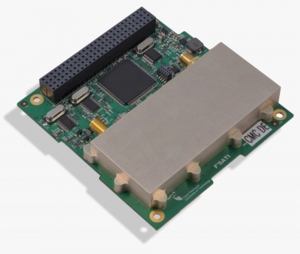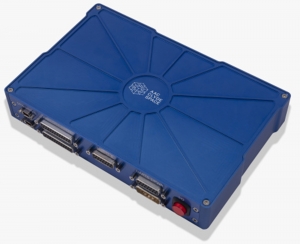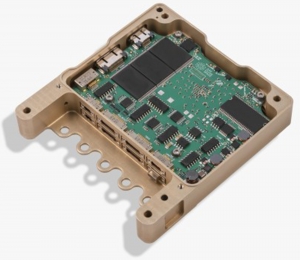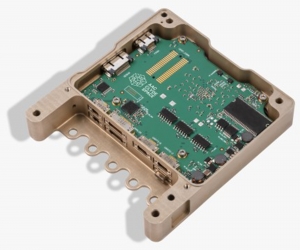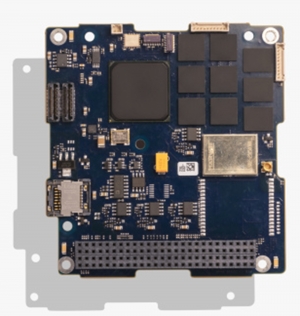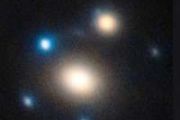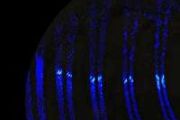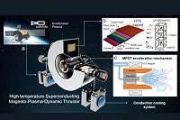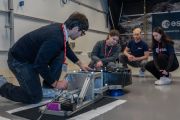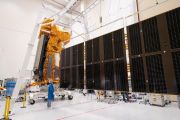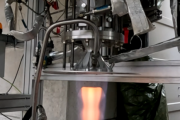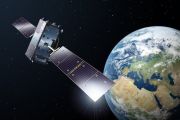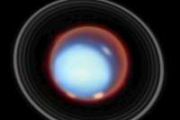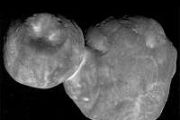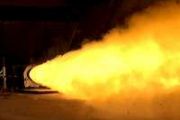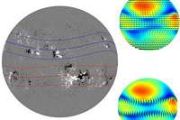Displaying items by tag: CCSDS
PULSAR - TM/TC
Our software-defined radios are highly adaptable communication solutions that have a 100% success rate on orbit. We offer systems ranging from VHF to X-band, Ku-Band and Ka-Band. Combined with our platform range, our transmitter and transceivers enable performance without compromise.
- TT&C and data downlink solutions
- A range of high-performance PULSAR antennas available
- Supports both amateur and commercial bands
- Compatible with all AAC Clyde Space structures
The PULSAR-TMTC is a compact telemetry and command radio designed for nanosatellite missions, compatible with the CubeSat standard with a CubeSat kit PC/104 form factor. The transceivers are ideal for space missions where a low data–rate uplink and downlink is required as well as a robust lower data-rate back-up radio for a higher data-rate radio. The AX.25 protocol implemented is popular among amateur radio enthusiasts. A transparent downlink mode is available with a CCSDS compatible ½ rate convolutional encoder.
PULSAR-TMTC implements 9600 bps GMSK and 1200 bps AFSK and operates in full-duplex (VHF/UHF) or half-duplex (UHF) mode. A combination of AFSK and GMSK is configurable for transmit and receive. These modes are selected as an I2C command and the default mode will be selected if a reset occurs. The default mode can be requested at time of production. The transceiver offers transmit and receive frequencies covering both amateur and commercial bands.
SIRIUS OBC DEVELOPMENT KIT - Command & Data Handling
Designed for advanced nano-satellite constellations in LEO and deep space exploration missions the readily available Sirius OBC with LEON3FT delivers ‘always-on’ reliable operations that work every time on time with precision performance. With enhanced error detection and correction, the Sirius OBC is tolerant to Single-Event-Effects (SEE) in logic and data storage. Fault tolerance is secured through TMR (Triple-Modular Redundancy) on all FPGA flip-flops and through boot flash and EDAC (error detection and correction) on memories. The development kit is powered through a mains 12V adaptor, eliminating the need for specialised power supplies or other laboratory equipment.
Sirius spacecraft avionics are modular in design. Modules can be combined to offer redundant configurations, or to simply accommodate mission specific requirements. The Sirius TCM LEON3FT has a standard single string system that consists of an on-board computer (Sirius OBC) and a combined mass memory with CCSDS stack (Sirius TCM). The OBC runs mission specific software and manage the spacecraft system. The TCM receives and stores payload data and platform housekeeping data while at the same time distributing telecommands and serving mass memory data to the transceiver.
SIRIUS TCM LEON3FT - Command & Data Handling
Flight proven across multiple mission applications for a range of customer requirements, this readily available solution has a reputation for reliability and performance for advanced small and nano-satellite missions. The Sirius TCM LEON3FT has inherited advanced error detection and correction in it’s design. The real-time operating system runs on a LEON3FT fault-tolerant soft processor, compliant to IEEE 1754 SPARC v8, and fault tolerance is secured by using triple-modular redundancy on FPGA and memory scrubbing.
Sirius spacecraft avionics are modular in design. Modules can be combined to offer redundant configurations or to simply accommodate mission specific requirements. The Sirius TCM LEON3FT has a standard single string system that consists of an on-board computer (Sirius OBC) and a combined mass memory with CCSDS stack (Sirius TCM). The OBC runs mission specific software and manage the spacecraft system. The TCM receives and stores payload data and platform housekeeping data, while at the same time distributing telecommands and serving mass memory data to the transceiver.
SIRIUS OBC LEON3FT - Command & Data Handling
Designed for advanced nano-satellite constellations in LEO and deep space exploration missions the readily available Sirius OBC with LEON3FT delivers ‘alwayson reliable operations that work every time on time with precision performance. With enhanced error detection and correction, the Sirius OBC is tolerant to Single-Event-Effects (SEE) in logic and data storage. Fault tolerance is secured through TMR (Triple-Modular Redundancy) on all FPGA flip-flops and through boot flash and EDAC (error detection and correction) on memories.
Sirius spacecraft avionics are modular in design, modules can be combined to offer redundant configurations or to simply accommodate mission specific requirements. The Sirius TCM LEON3FT has a standard single string system that consists of an on-board computer (Sirius OBC) and a combined mass memory with CCSDS stack (Sirius TCM). The OBC runs mission specific software and manage the spacecraft system. The TCM receives and stores payload data and platform housekeeping data while at the same time distributing telecommands and serving mass memory data to the transceiver.
KRYTEN-M3 - Command & Data Handling
Developed to deliver ‘always-on’ operation, KRYTEN-M3 computing solutions work every time on time. Flight proven across multiple mission applications for a range of customer requirements, this readily available solution has advanced error detection and correction. Featuring a SmartFusion 2 SoC including Cortex-M3 processor @ 50 MHz delivering 62.5 DMIPS, and enhanced hardware/ firmware recovery mechanisms, the KRYTEN- M3 delivers advanced precision performance for the most demanding nanosatellite missions.
Our reliable space data handling solution is safeguarded with autonomous single event latch-up protections, ADVANCED PRECISION PERFORMANCE delivering high performance computing with integrated cache and Non-Volatile MRAM Memory. All protected by SECDED and EDAC mechanism to guard against radiation effects.
The inclusion of 4 GB of SLC flash memory provides ample space for mission data storage. GPS is available on Kryten-M3- PLUS models.
KRYTEN-M3 is supplied with a BSP including bare metal drivers, comprehensive API reference documentation, a full user manual and thoroughly documented source code.
Consultative Committee for Space Data Systems (CCSDS)
The Consultative Committee for Space Data Systems (CCSDS) was formed in 1982 by the major space agencies of the world to provide a forum for discussion of common problems in the development and operation of space data systems. It is currently composed of eleven member agencies, twenty-eight observer agencies, and over 140 industrial associates.
Since its establishment, it has been actively developing Recommendations for data- and information-systems standards to promote interoperability and cross support among cooperating space agencies, to enable multi-agency spaceflight collaboration (both planned and contingency) and new capabilities for future missions. Additionally, CCSDS standardization reduces the cost burden of spaceflight missions by allowing cost sharing between agencies and cost-effective commercialization.

